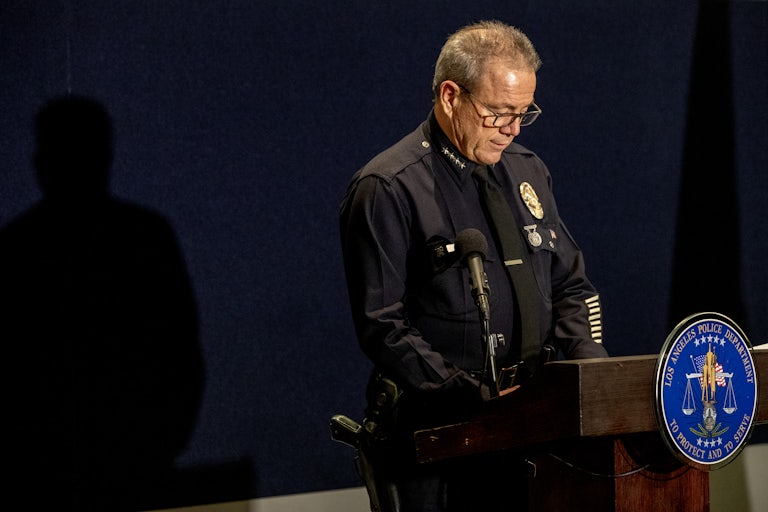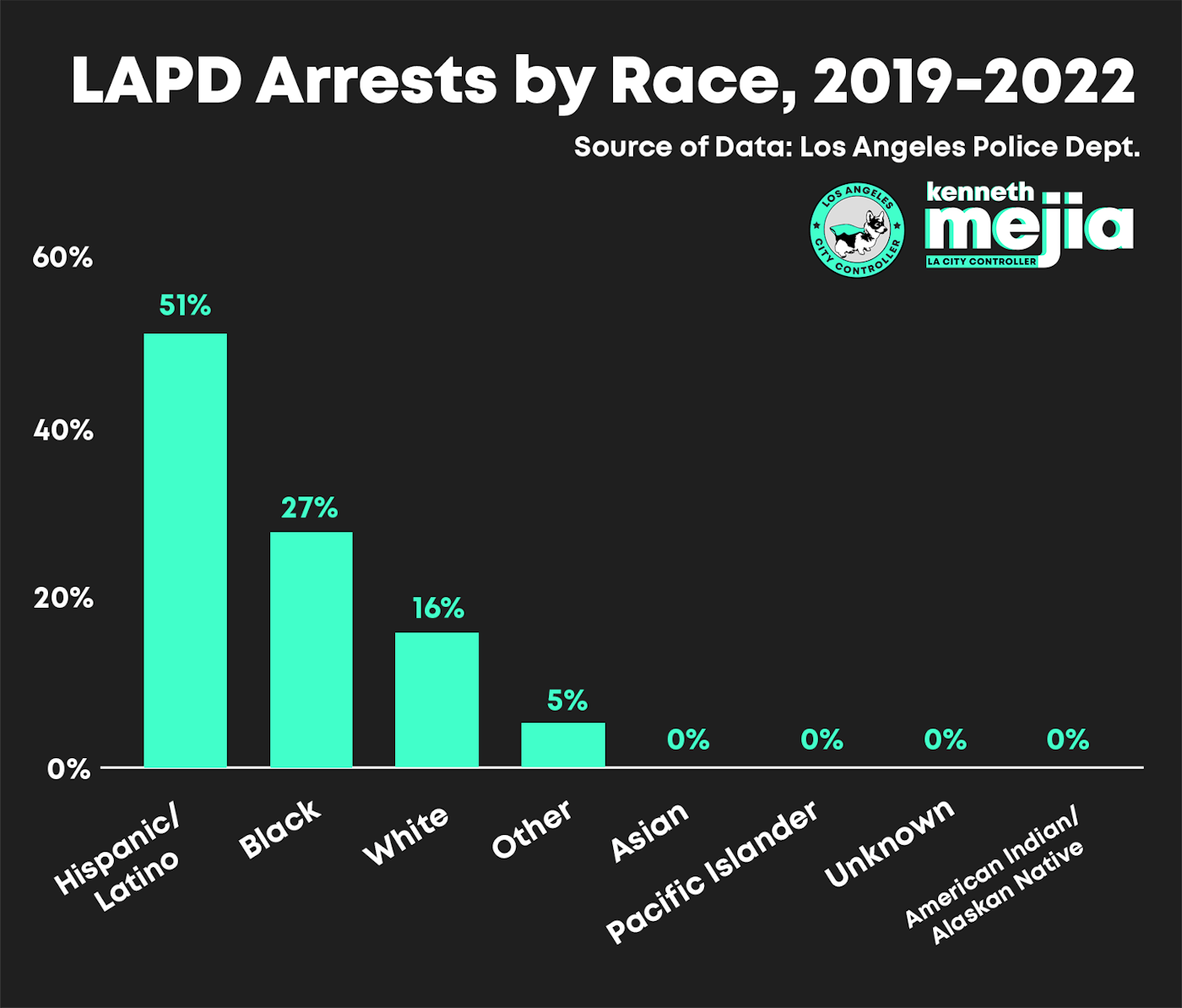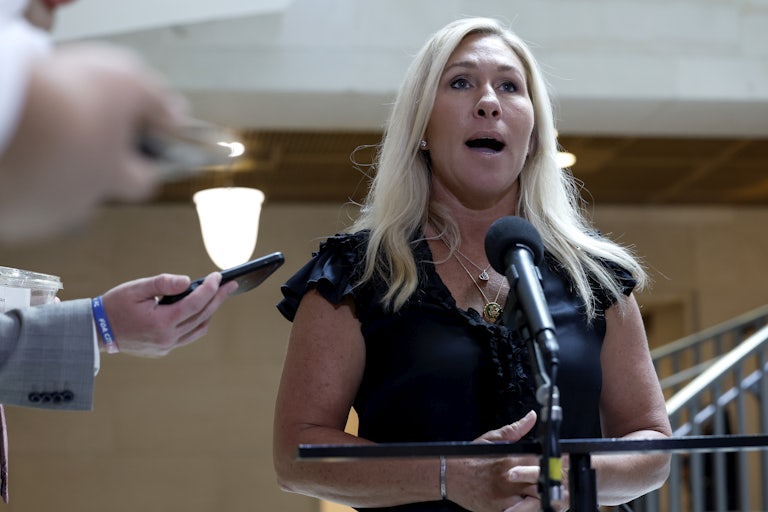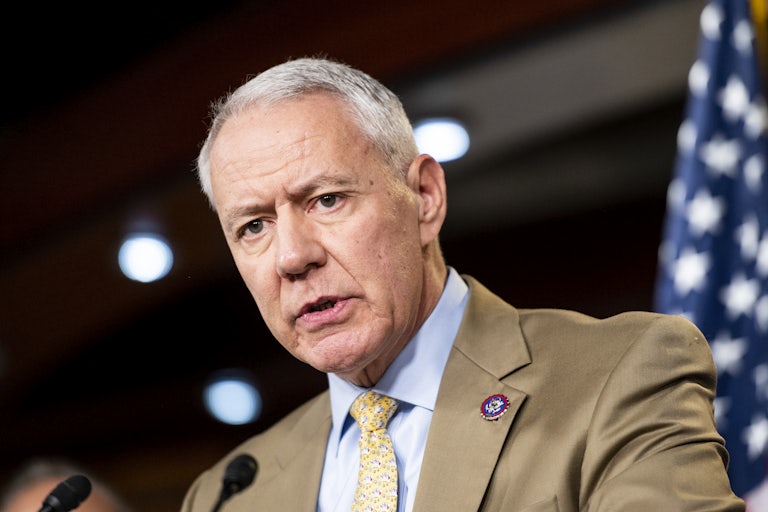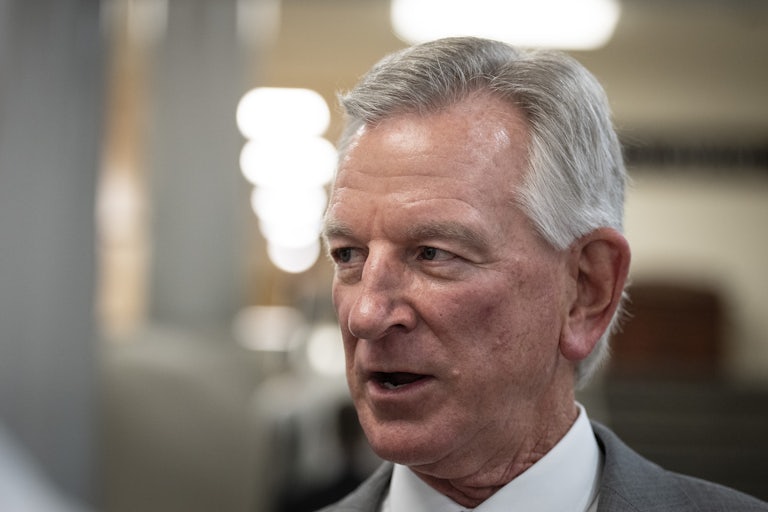This Senate Is the Second-Oldest in History
A recent incident with Mitch McConnell has cast a light on just how old this Congress is.

Congress is even older than you think it is.
On Thursday, Senate Minority Leader Mitch McConnell seemed to shut down while giving a press conference at the Capitol. He froze, apparently unable to speak, as several of his colleagues asked him if he was alright. Eventually, he had to be escorted away.
While he seems to have recovered shortly thereafter—glaring at reporters who asked him whether he had chosen a successor yet—the incident has revived questions about his age and fitness to serve. After all, this isn’t the 81-year-old lawmaker’s first public health scare.
But zooming out, it also casts a light on just how old our Congress is getting.
According to an NBC News analysis, this Congress is the third-oldest since 1789, when the legislative branch as we know it today was first established. The Senate is the second-oldest in U.S. history.
And as the House keeps getting younger, the Senate keeps getting older.
A Pew analysis found that the median age of House lawmakers is 57.9 years, down from 58.9 in the last Congress. The Senate’s median age, however, is 65.3 years, an uptick from 64.8 in the last session. These reverse trends have been continuing for years now.

While age isn’t everything, and we don’t have the full details of what happened to McConnell, it’s hard not to be concerned about this trend.
In March, McConnell tripped and suffered a concussion and cracked rib, leaving him out of session for nearly six weeks before he was finally able to return to Congress. His injury is a common one among older people, as an estimated 800,000 seniors per year are hospitalized for injuries from falling. After Thursday’s incident in the press conference, reporters revealed that McConnell has fallen multiple times this year and has taken to using a wheelchair in airports to avoid future accidents. (McConnell, it should be noted, is a polio survivor and walks with a limp, but his recent history is troubling even his Republican colleagues.)
On the other side of the aisle, Senator Dianne Feinstein was missing from the chamber for nearly three months due to a particularly bad bout of the shingles. The illness led her to contract Ramsay Hunt syndrome, causing facial paralysis and vision and balance impairments, as well as encephalitis, an inflammation of the brain that can cause “lasting memory or language problems, sleep disorders, bouts of confusion, mood disorders, headaches and difficulties walking,” according to The New York Times.
When she did finally return to Congress, Feinstein seemed completely unaware that she had been missing at all.
On Thursday morning, during a vote on the defense appropriations bill, she launched into a full speech instead of simply casting her vote.
Asked to vote on the defense appropriations bill, Sen. Dianne Feinstein (D-CA) begins giving a speech: “I would like to support a ‘yes’ vote on this. It provides …”
— The Recount (@therecount) July 27, 2023
Sen. Patty Murray (D-WA): “Just say aye.” pic.twitter.com/Gw2eZ9rEMv
“Just say ‘aye,’” Senator Patty Murray advised Feinstein, giving her a thumbs up.
“OK, just—?” she replied, looking confused. “Aye.”

